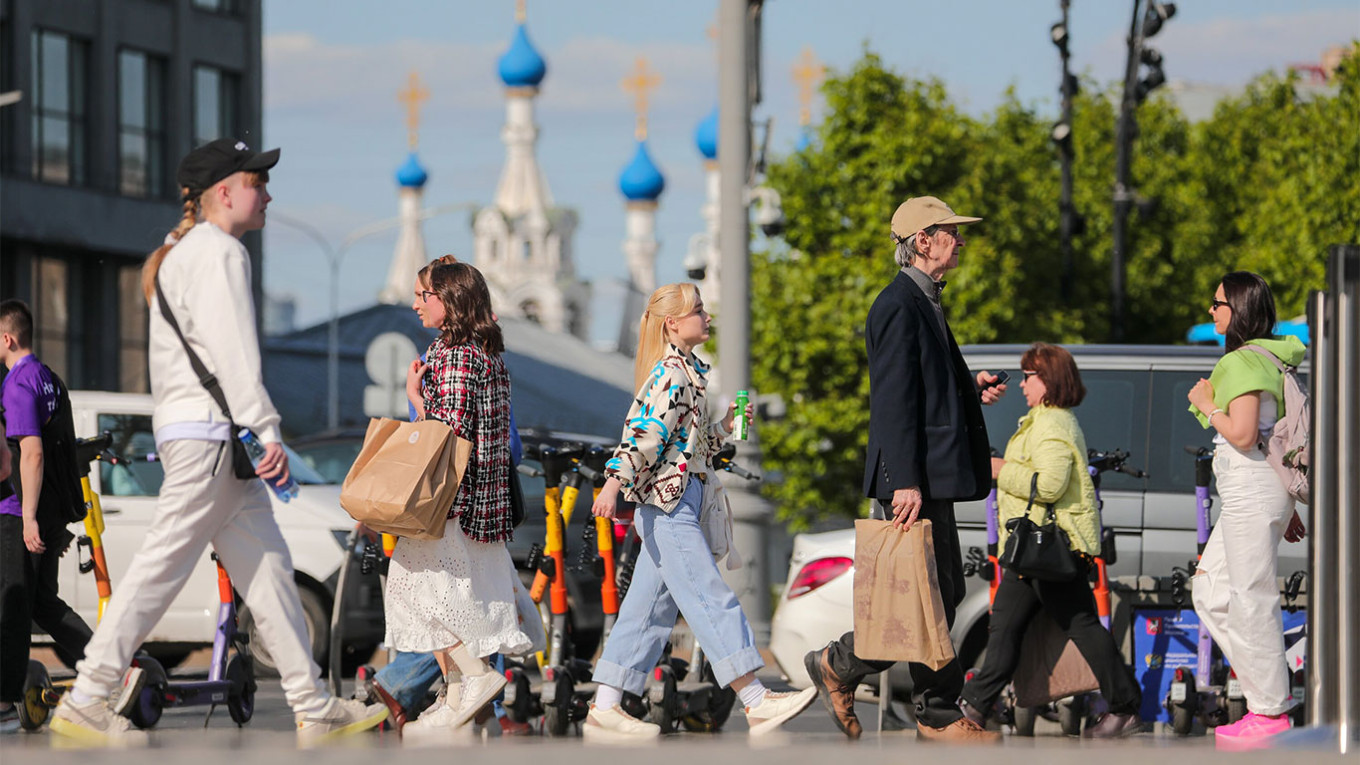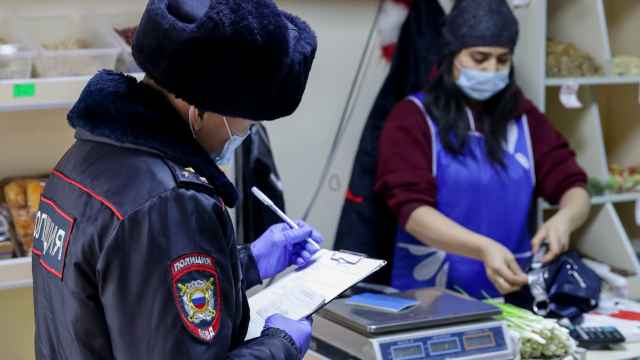Russia's gross domestic product shrank by 1.9% in the first quarter of 2023, the country's statistic agency Rosstat said Wednesday.
The economy was weighed down by another wave of sanctions imposed over its offensive in Ukraine, including a ban by the European Union on Russian petroleum products, on top of a price cap agreed with the Group of Seven and Australia.
These sanctions had a measurable impact on the Russian economy.
Despite oil exports at their highest level since the offensive began, oil revenues were still down 43% compared to a year ago, the International Energy Agency (IEA) said in March.
Lower oil revenues directly impacted the budget deficit, which hit 3.4 trillion rubles ($42.3 billion) between January and April.
This is considerably more than the target deficit of 2.9 trillion rubles.
The Finance Ministry said the deficit was due to shrinking energy revenues (-52%) and increasing expenditures (+26%), partly due to the Ukraine offensive.
On Wednesday, Rosstat said however the construction and agricultural sectors had held up well during the first quarter.
Experts said that given this trajectory Russia's public sector deficit could reach between 3-4% of its GDP, higher than the 2% target.
Inflation dropped in March to a 3.5% annual rate, and to 2.3% in April.
Russia's low unemployment rate of 3.5% is not a healthy sign, but rather a symptom of its shrinking labor force.
Russia has for years dealt with a demographic crisis, which only worsened with the Ukraine offensive.
It left the economy contending with a shortage of workers, with various sectors struggling to fill posts.
Russian authorities now believe that growth will be driven by consumption rather than exports, including because of increasing real wages.
A Message from The Moscow Times:
Dear readers,
We are facing unprecedented challenges. Russia's Prosecutor General's Office has designated The Moscow Times as an "undesirable" organization, criminalizing our work and putting our staff at risk of prosecution. This follows our earlier unjust labeling as a "foreign agent."
These actions are direct attempts to silence independent journalism in Russia. The authorities claim our work "discredits the decisions of the Russian leadership." We see things differently: we strive to provide accurate, unbiased reporting on Russia.
We, the journalists of The Moscow Times, refuse to be silenced. But to continue our work, we need your help.
Your support, no matter how small, makes a world of difference. If you can, please support us monthly starting from just $2. It's quick to set up, and every contribution makes a significant impact.
By supporting The Moscow Times, you're defending open, independent journalism in the face of repression. Thank you for standing with us.
Remind me later.






